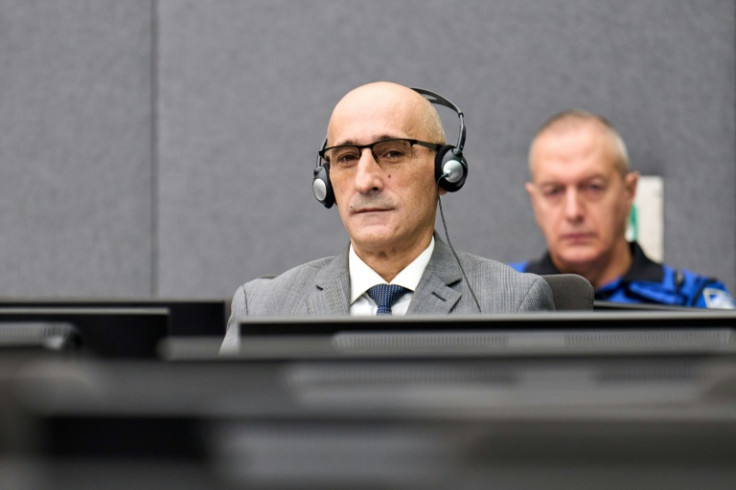Kosovo Court Upholds Conviction Of Rebel Commander, Reduces Jail Time

The special Kosovo court in The Hague on Thursday quashed an appeal by a former rebel commander convicted for torture and murder in the tribunal's "landmark" first conviction, but reduced his sentence by four years.
Salih Mustafa had been found guilty in December of running a makeshift torture centre, where he and his men brutally assaulted fellow ethnic Albanians they accused of spying for Serb forces.
The court upheld his convictions for arbitrary detention, torture and murder but reduced his sentence from 26 years to 22.
"The appeals panel considers that a single sentence of 22 years of imprisonment... reflects the totality of Mr Mustafa's criminal conduct in this case," said presiding judge Michele Picard.
However, she also stressed that the reduction in his sentence "in no way suggests that the crimes for which he has been convicted and sentenced are not grave".
Dressed in a grey suit, Mustafa listened impassively as the verdict was delivered.
Picard said the appeals court had examined cases in Kosovo and internationally concerning "comparable" war crimes.
In these cases, "shorter sentences were imposed than those imposed on Mr Mustafa", said the judge.
The 26-year term originally imposed on Mustafa was "out of reasonable proportion with the line of sentences imposed in similar circumstances for similar offences", she ruled.
Mustafa, 51, was a member of the Kosovo Liberation Army (KLA), which fought an independence war with Serbia in 1998 and 1999.
The court found he had kept detainees in "deplorable conditions unfit for humans" in a barnyard full of animal excrement.
Prisoners were given "inadequate food and water", judges said.
They were beaten regularly with baseball bats and hatchet handles, burned with hot candle wax and hot irons, and subjected to electric shocks on their feet.
Mustafa personally interrogated two detainees, subjecting one to a mock execution and beating him "all over his body".
One victim was left in a "near-to-death" state and denied medical care.
He was later found dead, with judges saying this mistreatment and lack of aid had contributed to his death.
Mustafa's actions "effectively equalled a decision to kill the murder victim, as at that stage he was denied any chance of survival", the court judge ruled in December.
Mustafa, also known by his nom de guerre of "Commander Cali", pleaded not guilty throughout the proceedings at the court, which he compared to a "Gestapo office", in reference to the Nazi secret police.
In addition to his sentence, Mustafa was ordered to pay 207,000 euros ($223,000) in compensation to his victims. He did not challenge this fine.
Mustafa had told the appeals hearing: "I'm convinced that I did not commit any of the crimes that I was charged with by the prosecution."
"The prosecution has the evidence, all the evidence, and knows exactly what happened, and it's not... even that close to the reality that happened," he added.
His lawyers wanted the convictions quashed or, failing that, a re-trial or a reduction in sentence, which they said was "both capricious and manifestly excessive in all the circumstances".
The high-security court operates under Kosovo law but is based in the Netherlands to shield witnesses from intimidation in Kosovo, where former KLA commanders still dominate political life.
The December 2022 verdict was hailed as a "milestone" for the court, established in 2015, as it was its first war crimes judgement.
One of the top prosecutors of the initial case, Jack Smith, went on to charge former US President Donald Trump with conspiring to overturn the 2020 election.
The court, known formally as the Kosovo Specialist Chambers, is currently running a war crimes trial against former Kosovo President Hashim Thaci, who resigned following his indictment.
The Kosovo war, which left 13,000 people dead, ended when Serbian president Slobodan Milosevic's forces withdrew after an 11-week NATO bombing campaign.
Although Kosovo declared independence from Serbia in 2008, Belgrade does not recognise it and encourages the Serb majority in northern Kosovo to defy Pristina's authority.
© Copyright AFP 2024. All rights reserved.





















